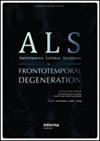Review of Queer in Translation: Sexual Politics under Neoliberal Islam by Evren Savcı (Duke University Press)
引用次数: 0
Abstract
Evren Savcı’s Queer in Translation presents an alternative, both in methodology and analysis, to the Orientalist analytical frameworks typical of Western scholars studying queer politics in Middle Eastern regions. Specifically, Savcı analyzes the rise of Turkey’s Adalet ve Kalınma Partisi (AKP; in English, the Justice and Development Party) to show how the AKP’s increased securitization and oppression of marginalized communities—including, but not limited to, Turkey’s LGBTQ community—is the result of the marriage of Islam and neoliberalism. Savci produces compelling case studies that reveal how Turkey’s weaponization of religion, morality, and capitalism serve to secure the nation against dissenting citizens. From the discourse surrounding the complicated murder of a gay Kurdish man, to unlikely solidarities between religious hijabi women and LGBTQ activists, and the public commons that became Gezi Park, Savci’s critical translation methods reveal how the language to construct and resist securitization in Turkey are far more nuanced than simple attribution to solely Islamist extremism or Western neoliberal influence.《翻译中的酷儿:新自由主义伊斯兰教下的性政治》书评,作者:埃夫伦·萨夫奇(杜克大学出版社)
萨夫基的《翻译中的酷儿》在方法论和分析上都为西方学者研究中东地区酷儿政治的典型东方学分析框架提供了另一种选择。具体来说,savcyi分析了土耳其的Adalet ve Kalınma Partisi (AKP;正义与发展党)来展示正义与发展党对边缘群体(包括但不限于土耳其的LGBTQ群体)日益增加的证券化和压迫是伊斯兰教和新自由主义结合的结果。萨维奇制作了引人注目的案例研究,揭示了土耳其如何将宗教、道德和资本主义武器化,以保护国家免受异见公民的侵害。从围绕一名库尔德同性恋男子的复杂谋杀案的讨论,到宗教头巾妇女和LGBTQ活动家之间不太可能的团结,以及成为Gezi公园的公共场所,Savci的批判性翻译方法揭示了土耳其语言如何构建和抵制证券化的微妙之处,而不仅仅是简单地归因于伊斯兰极端主义或西方新自由主义的影响。
本文章由计算机程序翻译,如有差异,请以英文原文为准。
求助全文
约1分钟内获得全文
求助全文

 求助内容:
求助内容: 应助结果提醒方式:
应助结果提醒方式:


